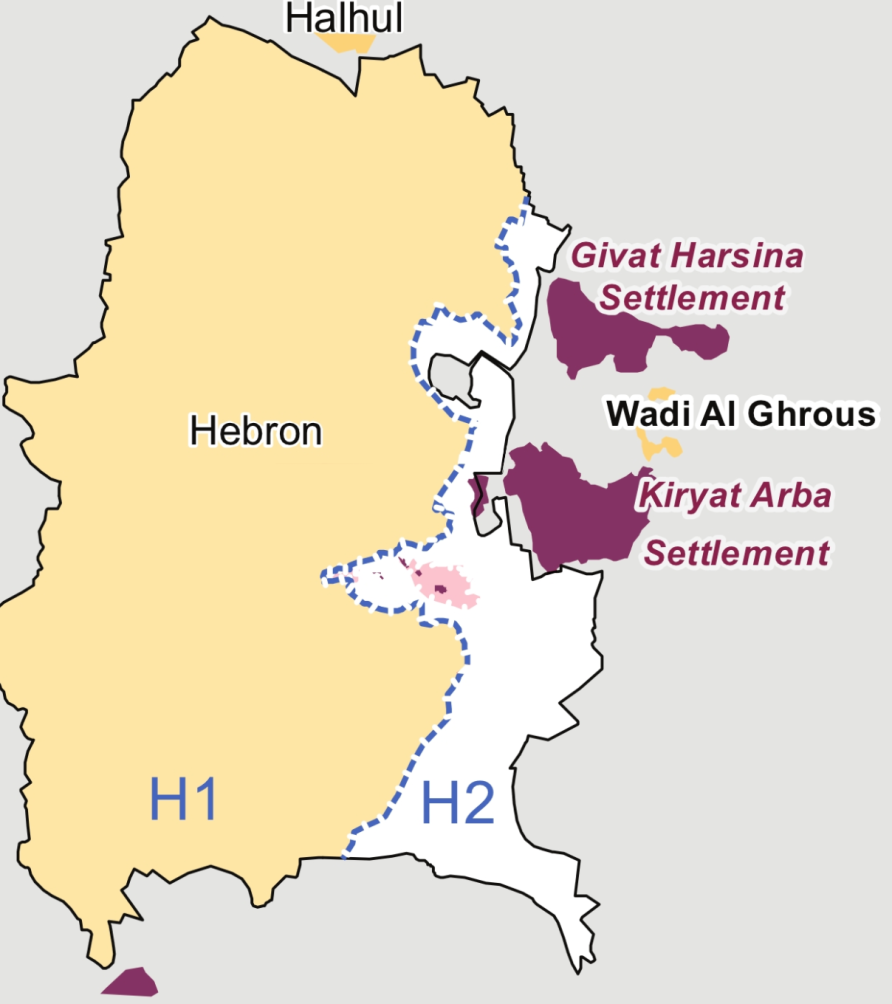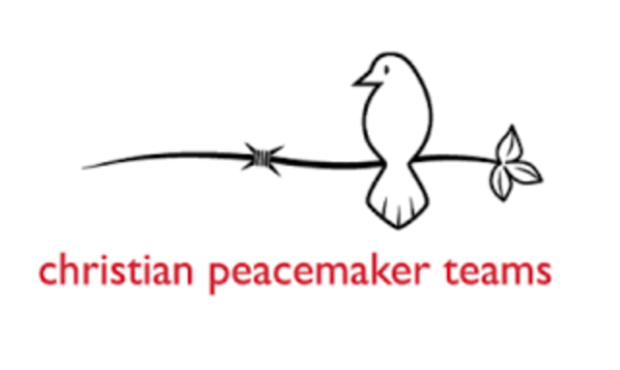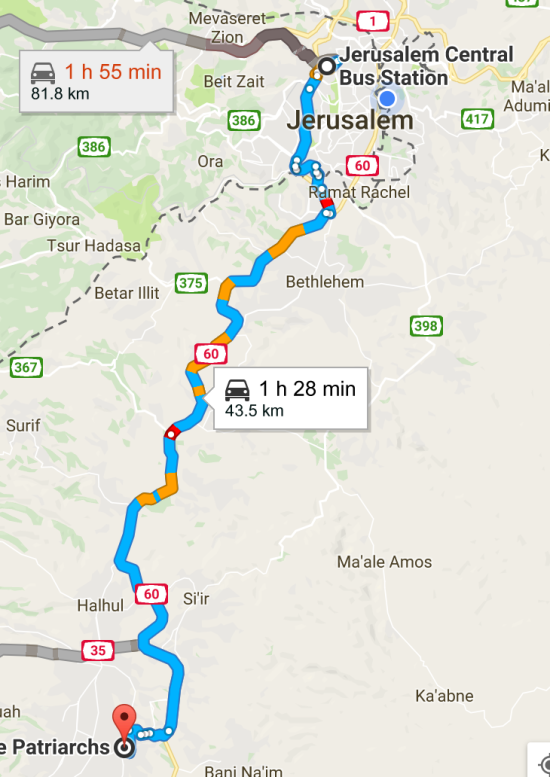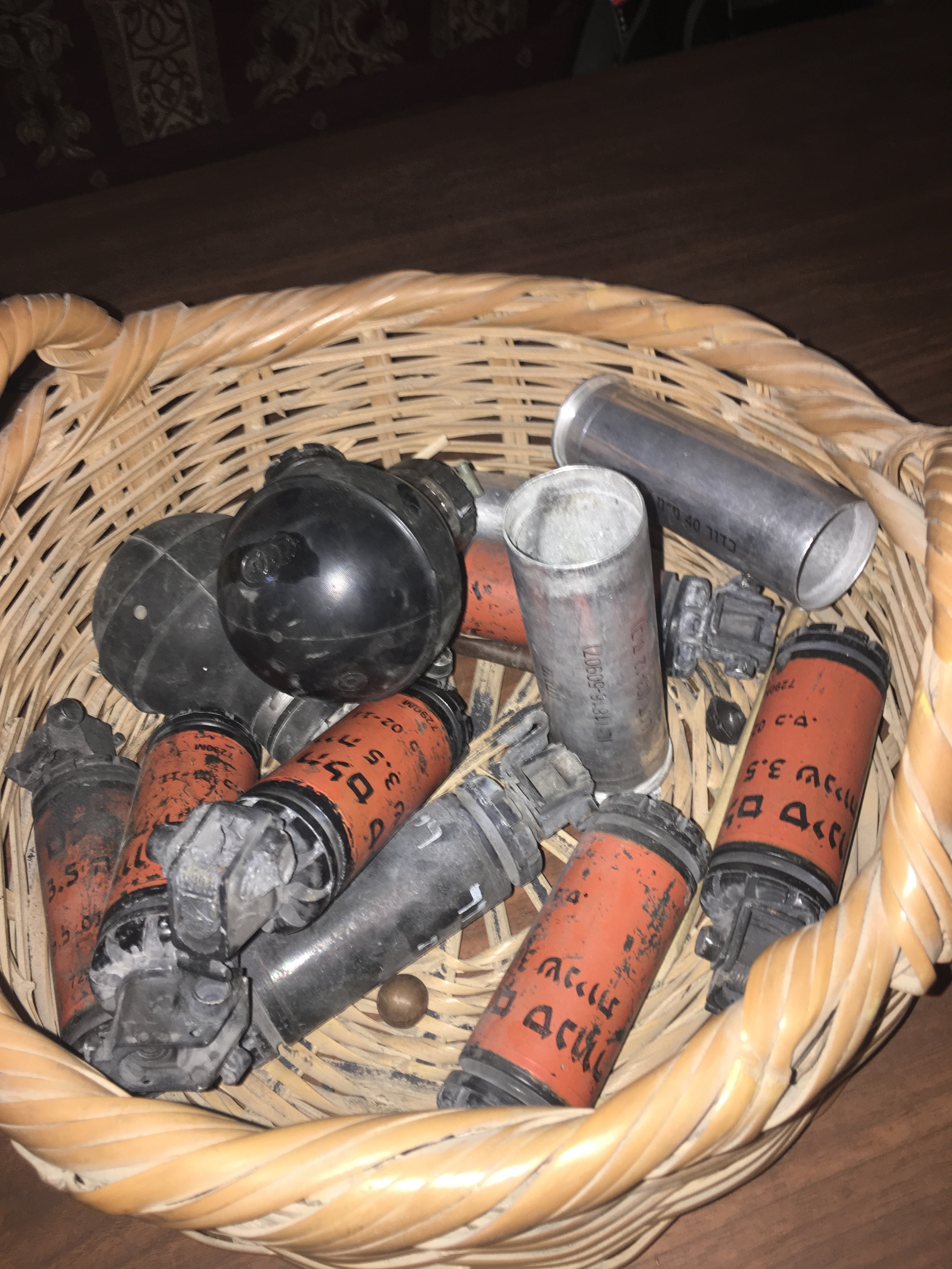Day Twelve – Hebron and Christian Peacemaker Teams
Day Twelve – Hebron and Christian Peacemaker Teams
The most pressing problem in the Palestinian-Israeli conflict is the challenge presented by the settlements in the West Bank. We will travel to a settlement tomorrow and will have more details there on the Settlement movement. Briefly, Settlements are intentional Israeli communities, established in the West Bank, that are either legitimate endeavors based on the rightful claims of the Jewish population to land of Israel OR illegal intrusions into the region by a colonial power.
Perhaps no more challenging are the Settlements outside of Hebron.

The Settlers in the two communities outside of Hebron are particularly aggressive in establishing both their right to be there and the right of the Jews to “possess the lands of Judea and Samaria,” to use their terminology. The aggressive posturing of the Settlers has led to daily confrontations with the Palestinians in Hebron, some of which have turned violent. Israeli organization B’Tselem (you will remember them from Day Two) states that there have been “grave violations” of Palestinian human rights in Hebron because of the “presence of the settlers within the city.” In order to protect the Settlers (numbering around 850), Israel stations about 650 Israeli Defense Forces (IDF).
Into this mix moves Christian Peacemaker Teams (CPT). CPT was established in 1994, motivated by a call to engagement by Ron Sider. Troubled by the “passiveness” of Christian pacifists, he called for radical engagement by those who call themselves by that name. His now famous challenge is at the heart of the mission of CPT
Making peace is as costly as waging war. Unless we are prepared to pay the cost of peace-making we have no right to claim the label or preach the message.
Sider imagined a Christian pacifist “brigade” of 200,000 dedicated individuals who would put themselves in harms way, if necessary, to stop violence. These individuals would place themselves at risk in the same way soldiers would in a combat situation. This means that these uber-dedicated pacifists might even lose their lives confronting evil, as some have.
Unless we Mennonites and Brethren in Christ are ready to start to die by the thousands in dramatic vigorous new exploits for peace and justice, we should sadly confess that we really never meant what we said….
Unless comfortable North American and European Mennonites and Brethren in Christ are prepared to risk injury and death in nonviolent opposition to the injustice our societies foster and assist in Central America, the Philippines, and South Africa, we dare never whisper another word about pacifism to our sisters and brothers in those desperate lands….
Unless we are prepared to pay the cost of peacemaking, we have no right to claim the label or preach the message (source)
Christian Peacemaker Teams

Partnering with nonviolent movements around the world, CPT seeks to embody an inclusive, ecumenical and diverse community of God’s love. We believe we can transform war and occupation, our own lives, and the wider Christian world through:
the nonviolent power of God’s truth
partnership with local peacemakers
bold action
CPT places teams at the invitation of local peacemaking communities that are confronting situations of lethal conflict. These teams seek to follow God’s Spirit as it works through local peacemakers who risk injury and death by waging nonviolent direct action to confront systems of violence and oppression.
CPT understands violence to be rooted in systemic structures of oppression. We are committed to undoing oppressions, starting within our own lives and in the practices of our organization.
CPT enlists the whole Church in an organized, nonviolent alternative to war. CPT’s initial roots among Mennonites, Church of the Brethren and Quakers have spread into a broad ecumenical network that supports:
- biblically based and spiritually-centered peacemaking
- creative public witness
- nonviolent direct action
- and protection of human rights. (From the website)
We drove to Hebron in the West Bank:

Visited the markets in the Old City of Hebron
to meet Katherine, a staff member with CPT in Hebron.
During her remarkable presentation, Katherine discussed the nature of her work and highlighted the following:
- Safety is an illusion we create via wealth and violence
- The Israelis are involved in the “criminalization of daily life” in that a Palestinian can be stopped and/or detained for just about any reason at any time.
- Three major areas of focus:
- Monitor “hot spots” – Create quantitative data on how often Palestinians are stopped, delayed, etc. Send reports
- Be on call when needed – Will respond/intervene/monitor if there is a confrontation
- Be in solidarity with the oppressed – amplifying voices of Palestinians (not being their voices)
Katherine shared with us experiences they have had as Christian peacemakers who intervene at the point of conflict between the oppressed and oppressor. For Katherine, the oppressors in Hebron are those who live in the Settlements and the IDF. She shared with us stories of rude and aggressive behavior of the Settlers. Also, stories of coming along side of young boys who have been arrested/detained by the military, documenting harassing behavior by soldiers, and the time they were raided for displaying a protest sign. In all this, Katherine displayed not only a deep concern for those they defend, but a sincere desire for change in the hearts and minds of those who oppress.
Summary
It was a humbling pleasure to meet individuals who are an embodiment of Ron Sider’s challenge to “operationalize” pacifism. They have interjected themselves into one of the most challenging situation there is on the planet and have some success in intervening in situations to protect those most vulnerable. They know that their efforts might seem insignificant to those from afar, and might not seem like it makes difference on a grand scale, but it makes a difference to those whom they assist and those of us privileged to view their work up close.
Below, some of the ordinance they have collected from around their facility.





